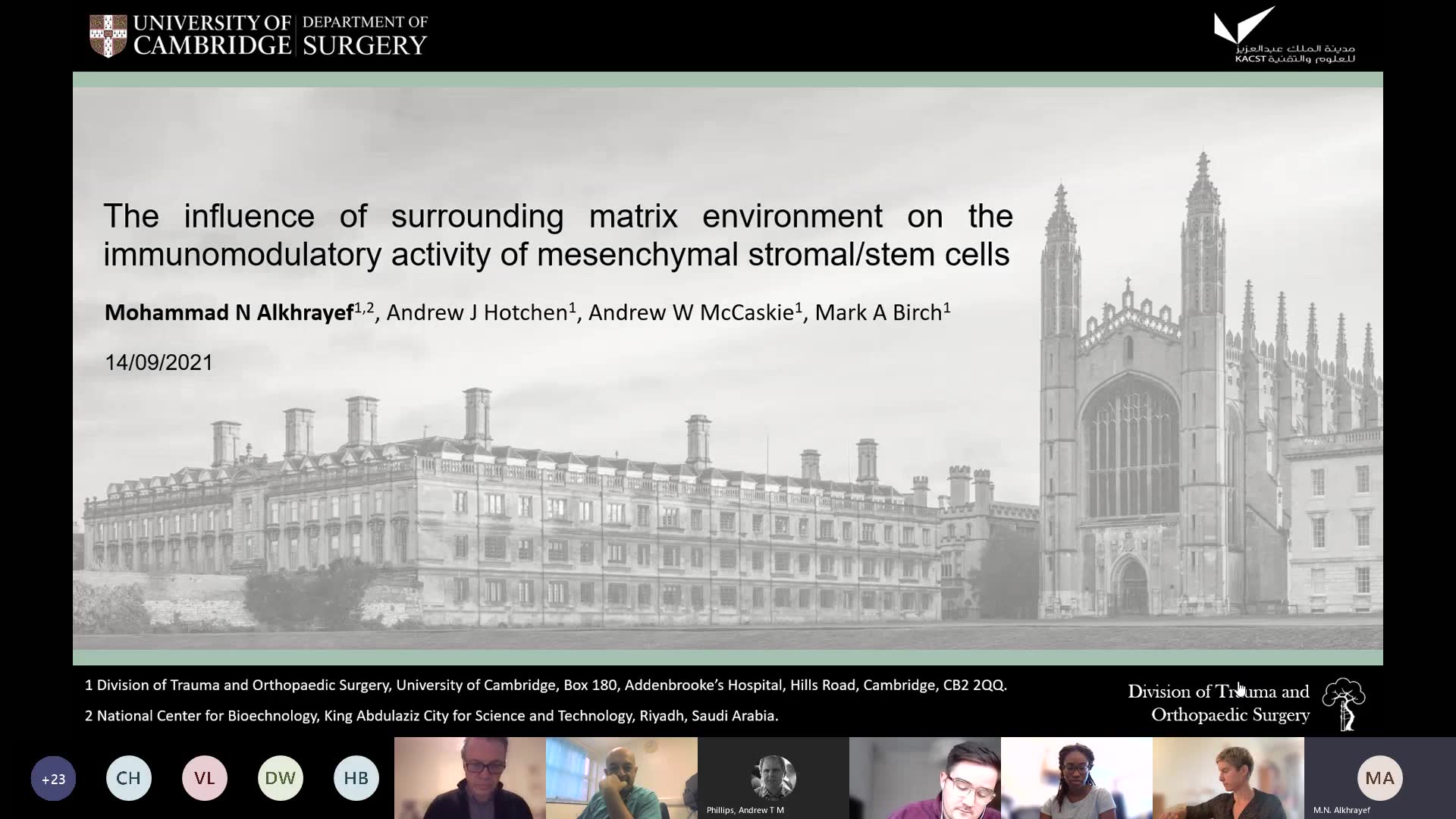Please login to view this media

- Talk
- 14/09/2021
- UK
The Influence of Surrounding Matrix Environment on the Immunomodulatory Activity of Mesenchymal Stromal/Stem Cells
Description
In this presentation, Mohammad Alkhrayef, a student at the University of Cambridge, discusses the effects of extracellular matrix environments on the immunomodulatory activities of mesenchymal stem cells (MSCs), particularly in the context of osteoarthritis. He begins by outlining the implications of osteoarthritis, emphasizing the significance of early intervention, specifically through surgical methods like microfracture, which stimulate healing through controlled injury.
Alkhrayef explains the mechanism behind marrow stimulation, which involves a sterile inflammatory response leading to tissue formation and remodeling for repair purposes. He highlights the importance of the interplay between immune cells and MSCs in the changing extracellular environment for effective healing.
The talk transitions into the methodology of his research, where he describes experiments involving MSCs grown in both two-dimensional (2D) and three-dimensional (3D) cultures using various extracellular matrix proteins. After exposing these cells to pro-inflammatory cytokines to simulate inflammation, he presents findings indicating that 3D environments significantly enhance the induction of TNF alpha-induced protein six, compared to traditional flat cultures.
Subsequent analyses reveal substantial alterations in gene expression under 3D conditions, notably with components involved in key signaling pathways such as MAPK and NF-kappa B. These pathways are linked to the observed changes in immunological responses. Alkhrayef mentions the potential for future studies targeting these pathways to investigate their roles further.
He concludes by asserting that 3D environments not only modulate MSC responses to inflammatory cytokines but also influence monocyte differentiation towards M2-like phenotypes, which are associated with tissue repair. The session wraps up with Alkhrayef engaging with questions from Catherine Pendergrass, who probes into the mechanical properties of the matrices used in their experiments and the associated outcomes. Throughout, the research emphasizes the dynamic role of MSC behavior in regenerative medicine and the necessity of mimicking in vivo conditions for optimal therapeutic effectiveness.